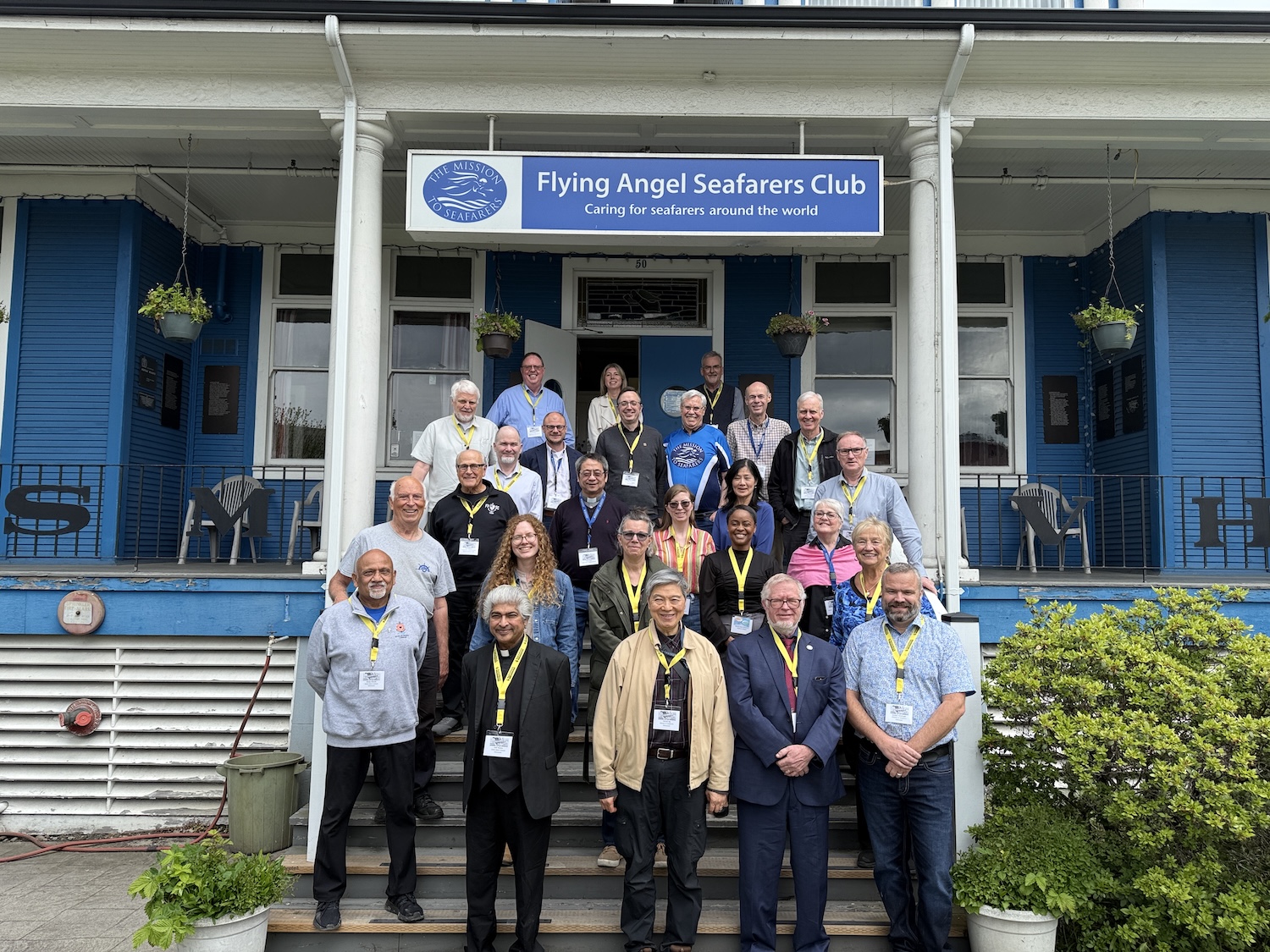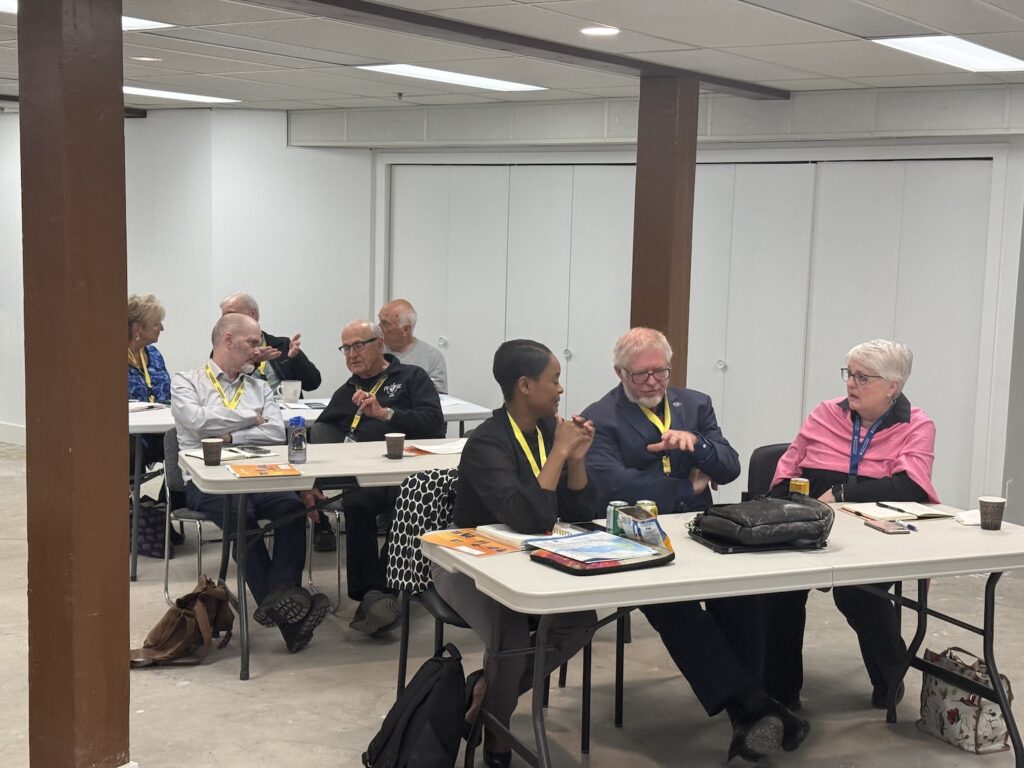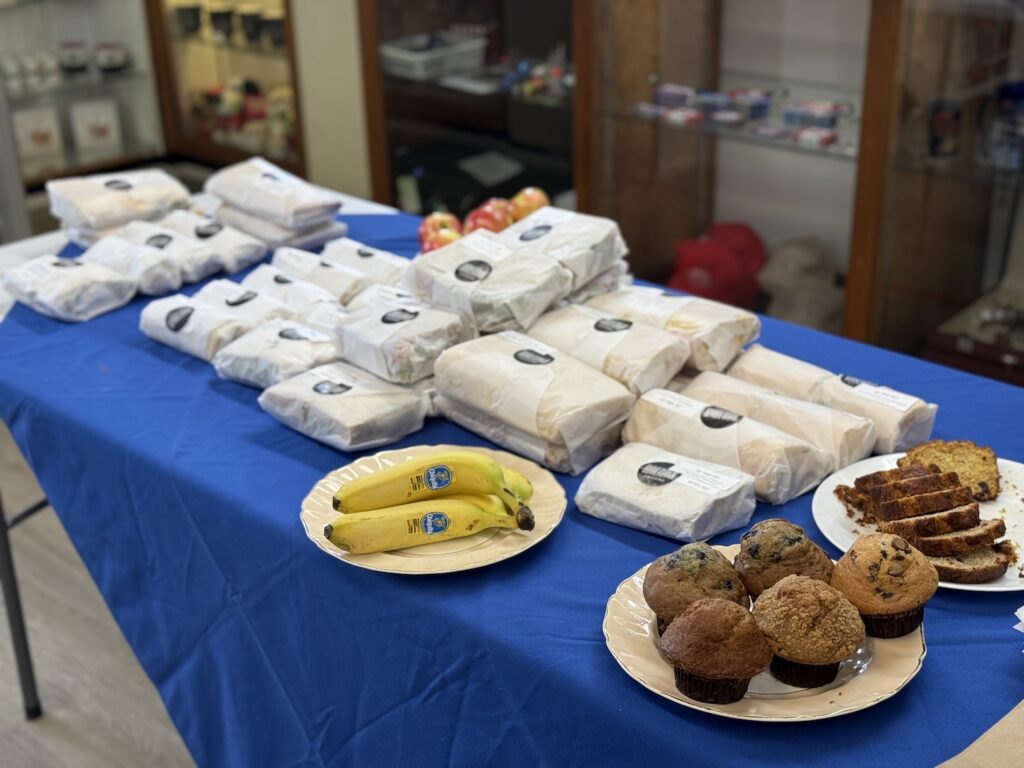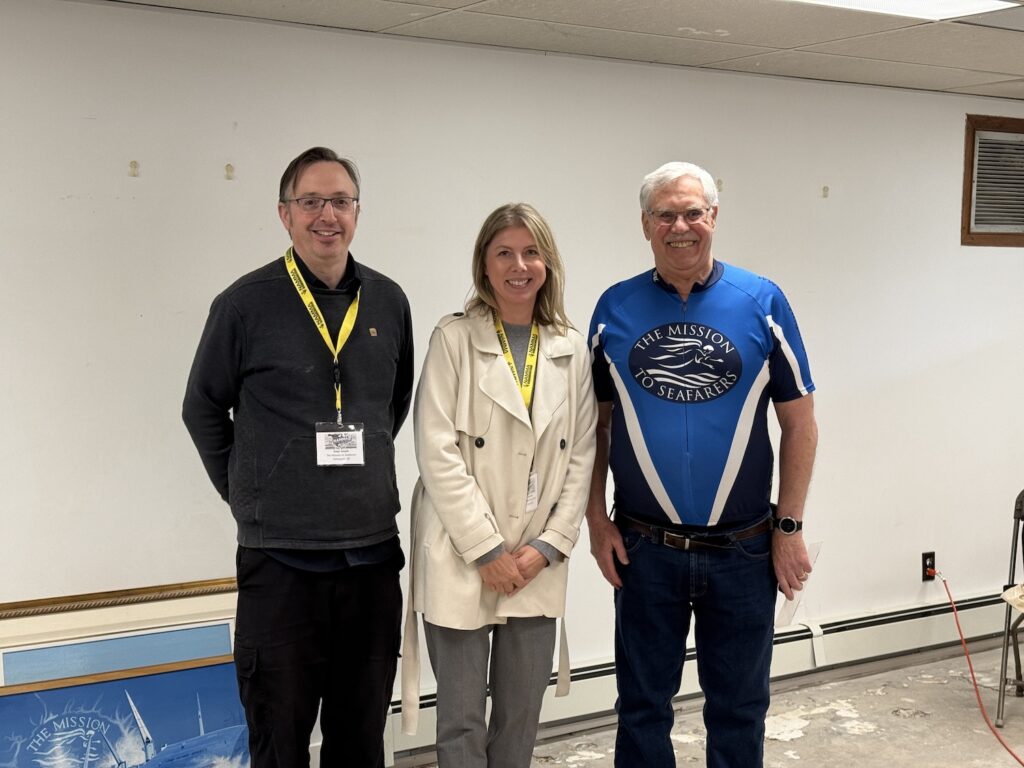Strengthening the Network of Maritime Ministry: A Reflection on the NAMMA North-West Regional Meeting in Vancouver

On May 13, 2025, over 25 maritime ministry leaders and volunteers from British Columbia and Washington State gathered at the Mission to Seafarers in Vancouver, BC, for the North-West Regional Meeting of the North American Maritime Ministry Association (NAMMA). While the day began with practical training in suicide prevention through the SafeTALK course, the afternoon sessions brought the spotlight to the stories, struggles, and successes of frontline ministry representatives. The round-table updates and presentations revealed both the depth of care offered to seafarers and the complex realities facing ministries in the region.



Each organization shared a snapshot of its unique context. Peter Smyth, Senior Port Chaplain with The Mission to Seafarers Vancouver, opened by acknowledging increasing port traffic and a growing need for seafarer transportation. With chaplains working ecumenically across denominational lines—including Stella Maris and the Christian Reformed Church—Smyth emphasized the collaborative spirit fueling the Vancouver ministry. Notably, he highlighted intern Sean’s involvement from Vancouver School of Theology, part of a broader commitment to training future leaders in maritime chaplaincy.
From Victoria, Deacon Philip Yuson of Stella Maris offered a moving portrait of grassroots ministry among cruise ship crews at Ogden Point. With only a few volunteers and no formal access to the cruise terminal, he relies on personal connections, shared language (Filipino and Indonesian), and profound hospitality—offering Masses and home-cooked meals to seafarers often experiencing church for the first time in years. “One crew member wept,” he recalled, “saying it was the first time in 10 years at sea that he had entered a church.”
Ray Hanna from Lighthouse Harbour Ministries described how centers continue to attract seafarers—but increasingly for practical reasons like Wi-Fi or shopping, rather than for community. Ray noted a rising mental health concern: “They may be connected digitally, but they’re disconnected personally.” Their mission aims to be a “micro-vacation” for the seafarers—rest, friendship, and a spiritual anchor in a hectic world.
The Ministry to Seafarers of the Christian Reformed Church in Vancouver, represented by Rev. Gary Roosma, echoed this focus on ship visits as a central ministry activity. He described his practice of slowing down to connect more meaningfully with crew, following the model of “slow visitation” from Panama’s Ian Hutchinson Cervantes. Despite tight port schedules, Roosma seeks to create space for presence, prayer, and conversation.
The Seattle Seafarers Center, led by Rich Shively and his dynamic team, shared stories from their cruise ship outreach and advocacy for abandoned seafarers, including a troubling case involving a Marshallese crew on a church-owned vessel. Their team—funded through partnerships with the Episcopal Diocese, the Catholic Archdiocese, and Lutheran Synod—emphasized the impact of long-term interns, like those from the Jesuit Volunteer Corps. Julia Cooper highlighted efforts to better support female seafarers through targeted resources and personal outreach.
Eric Phinney, the newly appointed Regional Director for Mission to Seafarers Canada, brought a national perspective. He stressed the importance of sharing best practices across stations, particularly in transportation and fundraising. He and Marsha Klein, the organization’s new fundraising lead, are developing a searchable database of ideas and tools to make local innovations more widely accessible. Klein also underscored her commitment to supporting each station with fundraising strategies, drawing from a rich career in philanthropy.
Others like Deacon Dileep Athaide with Stella Maris Vancouver described evolving needs—from the diminishing importance of SIM cards to a growing concern over food quality aboard ships.
Deena Rantz of the International Sailors’ Society Canada shared news of the strategic review process of her organization and their continued commitment to supporting seafarers’ welfare. The ISSC has achieved its goals this year and will soon be launching a new award to further bring recognition to seafarers.
Throughout the afternoon, these presentations wove a vibrant tapestry of ministry—at once deeply local and necessarily global. Whether in prayer before a ship visit, in cookies delivered to seafarers, or in late-night Masses celebrated by a visiting bishop, the stories shared pointed to the enduring power of care, companionship, and faith in maritime ministry.
The afternoon concluded with a historical reflection by Dr. Jason Zuidema on the formation of the Seafarers’ Society of British Columbia from 1969–1973. His presentation explored how past efforts at collaboration and consolidation were both ambitious and turbulent, but full of lessons that continue to inform ecumenical partnerships today.
As the group gathered in the chapel for closing prayer and later walked together to dinner in Gastown, the bonds between organizations felt strengthened—not just by shared challenges, but by the clear sense that seafarers’ welfare remains a vibrant calling best pursued together.